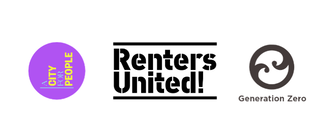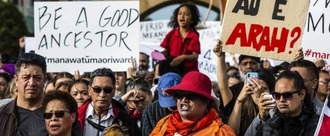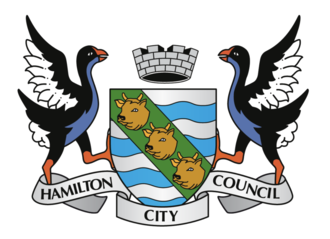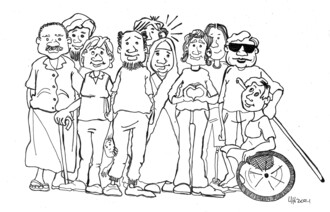-
Honouring Asylum: Bring Andika Refugees to Aotearoa New ZealandAustralia's turnback operations are illegal. The New Zealand government has stated this, and that it respects the right to asylum. Therefore, intervention in this case is critical. Offering resettlement to these refugees would make the government’s commitment to its legal obligations clear, and would uphold its reputation as a humanitarian leader.254 of 300 SignaturesCreated by Honouring Asylum

-
Power to the people: A right, not a privilege!The energy industry is full of solutions for people AFTER they have felt the impacts of power poverty and AFTER they have been disconnected. What is missing is an electricity retailer specifically designed to support vulnerable consumers, that can work with whānau to prevent those things from happening. The only way that this retailer can exist is if Generators, Government and all other players in the industry commit to work together in the Spirit of Manaakitanga. This is what true partnership looks like between tangata whenua and tangata tiriti. Solving this issue is not one that can be done alone - but one in which Māori must be involved in. Let us demonstrate a partnership our Tūpuna (ancestors), Tangata (people) and Tamariki (children) will be proud of. Power companies can switch off electricity for vulnerable whānau who aren't able to pay their power bill and turn others away if they have struggled to pay their bills in the past. With 17% of people saying they had trouble paying their power bill last year (Consumer NZ, 2020), hundreds of thousands of Kiwis are vulnerable to going without sufficient power to meet their needs, not in the future but right now! According to the ICCC report (2019), if the Government’s 100 per cent renewable energy goal is achieved by 2035, the average power costs for households would increase by 14%. And while we stand with the Government’s goal of decarbonising Aotearoa, we want to make sure policy is in place that means no whānau is left behind. If nothing changes, the amount of whānau living in energy hardship will accelerate. We believe money should NOT be a prerequisite to accessing sufficient energy to keep a whānau warm. No one should have the power to deny a parent the ability to feed their tamariki and keep the whare warm and dry. Over the past year, Nau Mai Rā has proven that if whānau are treated like whānau they will pay their bills on time every time, regardless of their credit history. By allowing us the responsibility to take care of power for vulnerable whānau, no New Zealander will be left out in the cold. Let's work together in the spirit of manaakitanga and ensure no whānau is left behind. Your support of this petition could solve power poverty in Aotearoa. Let us look after whānau Nā tō rourou, nā taku rourou ka ora ai te iwi With your food basket and my food basket, the people will thrive Ezra Hirawani Te Āti Haunui-a-Paparangi / Ngāti Rangi / Ngāpuhi / Ngāti Hako / Waikato Tainui Ben Armstrong Ngāti Hine / Waikato Tainui Read Stuff's recent article here for more information: https://www.stuff.co.nz/business/125262459/many-of-our-energy-assets-are-built-on-mori-land-so-why-do-mori-disproportionately-endure-power-poverty4,293 of 5,000 SignaturesCreated by Ezra and Ben
-
We want more homes for all in Wellington - pass an ambitious Spatial PlanWe have a crisis. Wellington can be a city built for people – with thriving communities, green spaces, and well designed homes and buildings that improve everyone’s lives. But Wellington’s housing crisis is hurting the people who live here. Decades of inaction mean house prices and rents are out of control, while badly maintained properties rot from underneath us. People are being priced out of the city, spending hours each day commuting while the city sprawls and our emissions rise. This crisis is different for everyone. Migrants, the LGBTQI+ community, and Pacifica & Māori are discriminated against in the rental market. Disabled people have very little choice of accessible homes. Everything is too expensive. We need more homes, but the Council hasn’t listened Last year, the Council asked the public for feedback on its 30-year Spatial Plan to make space for more housing. It didn't go far enough. The housing crisis needs serious long-term solutions like drastically increasing the number of homes. So we told them we needed more townhouses. More apartments. More homes close to where people work, live, and play. We asked them to make it easier to demolish bad quality homes and build new ones by reducing the protections on colonial character houses - these “character” houses are overcrowded, falling apart, and making people sick. They push out the real character: our young people, renters, and creatives who make this city great. The Council didn’t get feedback from everyone in Wellington. They heard a lot from homeowners and people with money who benefit from the status quo. But what about everyone else? 84% of young people (18-24) told the Council they want more housing and demand more ambition. The Council should be listening to the people who are experiencing the housing crisis, not the loud few pulling the ladder up behind them. We are asking the Council to do the right thing. The Spatial Plan should allow Wellington to plan for the future so that new generations of Wellingtonians can share the city we love. But to create that city, we need our Council to act. Now’s our chance. Ngā mihi nui, A City for People, Generation Zero, and Renters United We have come together to achieve a long-term solution to our city’s housing crisis. Contact: [email protected]1,408 of 2,000 SignaturesCreated by Generation Zero
-
Careers in Kapa HakaThe current issue with recruiting and the retention of qualified and professional kapa haka tutors in schools is a serious concern… Tamariki love kapa haka! The number of students who are participating and passionate about kapa haka is growing all the time! The student's knowledge of Te Reo me ona Tikanga Māori and confidence grow as they learn waiata, haka and other skills. We have seen improvements in the attendance and engagement of many students through a good quality kapa haka group. But finding the right people to fulfil that teaching role is a major and ongoing struggle. The Problem for Kura... As a national education priority (NEG 9 and NEG 10), the ability to find affordable, suitable and committed tutors shouldn't be so difficult. Schools are scrambling around every year to find professional tutors. On more than one occasion we have had people commit to tutoring our groups and then pull out in week one, term one! The anxiety this induces when you have up to 140 kids sitting in a hall ready to learn kapa haka is intense! The solution to this has been employing independent professional tutors. However, they are expensive, especially for smaller schools. Furthermore, the pull between priority curriculum areas and funding Māori performing arts is difficult for principals and boards of trustees. Funding is often prioritised to literacy and numeracy, science and technology, PE and LEOTC (NEG 5). The responsibility for funding Māori Performing Arts is a choice that should not be on the heads of individual principals and boards. As we are bound by Te Tiriti o Waitangi (Article Two), to protect this taonga and this should be done at a national level. Tutors are hard to find and relying on whānau to do the teaching of kapa haka is neither a respectful nor a sustainable option. Once you do find a volunteer (or someone who does the job for koha) the retention of tutors is difficult, life circumstances change for volunteers, more financially viable opportunities come up, new educational opportunities arise and family commitments, at times, take precedent. Many tutors cannot commit (for free) long-term to a school program. The problem for professional tutors... To run a free-market-style business funded by schools can be difficult for kapa haka experts. Particularly in relation to supporting families and maintaining a start-up business model or in the long term. Tutors can only charge what schools can afford and need to do all the mahi of running a business, understanding finances and organsing amongst many schools. They, therefore, need to have a certain amount of energy, confidence, and know-how to take these risks to manage this effectively. This is not an easy model for many people to set-up and run long term. As stated previously, schools are left to rely on whānau who volunteer or are given koha. This often puts pressure on whānau who have their own work and family commitments. It is not respectful to ask for so much for free, in a world where money is the formal acknowledgment of value. This feels disrespectful and is disheartening, to say the least for those who are asked to give so much for so little. On top of that, some tutors may not have the teaching skills required and it can be a daunting task for a whanau member (or two) to tutor a large group of children. There is usually little or no teaching training for these people and it can be seriously challenging for them. In summary, there are few or no professional and secure career pathways for people skilled in kapa haka. We need to create a system where people can achieve success in a Māori world and then have that honored with financial stability and security in the wider community. In short, the current system is not respectful of Māori mahi or the enormous value and importance placed on kapa haka by our tamariki. The schools are doing the best they can to fill this gap, but it shouldn't be this difficult to honour our commitments to Te Reo me Ona Tikanga Māori, me, Te Tiriti o Waitangi. We are calling that the taonga of kapa haka is protected through supported career pathways, that our tamariki have no obstacles to participation and that the Government and Iwi in partnership have a discussion and make a plan to implement structures for a long term tautoko of kapa haka. So join us to fight for paid professional kapa haka tutors in every school!333 of 400 SignaturesCreated by Anna-Marie Stewart
-
Initiate Māori Wards for Manawatū!Fulfilling Te Tiriti o Waitangi responsibilities requires partnerships between Maori and the Crown. This forms the basis of the amendments to the Local Electoral Act 2001 which allows all local government authorities to establish Māori wards or constituencies to provide for Māori representation. A Māori ward can give Mana Whenua a rightful seat at the council table as a Te Tiriti partner. The council that represents our entire district currently does not have any Māori sitting alongside them yet they continue to make decisions for Māori. This does not provide for tino rangatiratanga. We want fair representation for all people in the Manawatū District. Matauranga Māori, Tikanga Māori - Māori knowledge, customs and perspectives are hugely beneficial in decision making when considering community care, sustainable land use, conservation practices, climate crisis responses, enterprise, economic development, tourism, and the protection of vulnerable members of society. Their inclusion at Council through Māori representatives is an expression of the active protection of taonga (Māori treasures) and leads to better kawanatanga or good governance. When engaging with Council, Iwi have always demonstrated their position and willingness to be inclusive and considerate of all members of the wider community. The councillors who voted no or wish to defer Māori wards stated a number of perspectives, but the common reason was the 2018 referendum to overturn the 2017 decision to establish Māori wards. In February, the law that enabled this referendum and others like it was thrown out by Government, as it was discriminatory & racially biased. It is therefore discriminatory & racially biased to use this referendum as an argument. In addition, that referendum had a voter turnout of 44.47%, meaning the 'majority' who voted NO to a Māori ward represents just 34% of voters in the Manawatū District. 66% of our District did not offer their opinion in that referendum. Let our Mayor and Deputy Mayor, who voted to defer on 6 May and intend to vote again to defer on 20 May, know that you want them to CHANGE THEIR VOTE! ***This petition has been set up by an individual, to gather additional support from wider constituents in support of the Iwi collective Te Kotui Reo Taumata. While this petition is not administered by Te Kotui Reo Taumata, their representatives have contributed to the content of this page. The heading photo on this page is attributed to Stuff.co.nz*** Please only sign this petition if you are a resident or on the electoral roll in the Manawatū District. Check this map to see the District Boundary https://maps.mdc.govt.nz/IntraMaps90/default.htm Media Links Scoop Iwi collective walk away from Partnership with Manawatū District Council until further notice https://www.scoop.co.nz/stories/PO2105/S00071/te-kotu Stuff https://www.stuff.co.nz/pou-tiaki/300304206/hundreds-of-people-join-historic-march-for-mori-wards-in-manawat Waatea News Manawatū Council faces backlash https://www.waateanews.com/waateanews/x_news/MjcyODE/Paakiwaha/Manawatu-Council-faces-Maori-backlash Waatea News Manawatu iwi give council taste of backlash https://www.waateanews.com/waateanews/x_story_id/MjcyNzY=/Manawatu-iwi-give-council-taste-of-backlash Stuff Manawatū iwi to protest council over Māori wards decision https://www.stuff.co.nz/pou-tiaki/300303747/manawat-iwi-to-protest-council-over-mori-wards-decision Waatea News Manawatū council vote slight on mana whenua https://www.waateanews.com/waateanews/x_news/MjcyNTY/Paakiwaha/Manawatu-council-vote-slight-on-mana-whenua Scoop Manawatū District Council Defers Māori Ward Decision Until 2023 https://www.scoop.co.nz/stories/AK2105/S00141/manawatu-district-council-defers-maori-ward-decision-until-2023.htm Stuff Māori Wards vote may be close as Manawatū councillors split over issue https://www.stuff.co.nz/manawatu-standard/news/300276382/mori-wards-vote-may-be-close-as-manawat-councillors-split-over-issue The Daily Blog & Scoop Manawatū District Council Must not defer Māori Wards to 2024 - Green Party https://thedailyblog.co.nz/2021/05/12/manawatu-district-council-must-not-defer-maori-wards-to-2024-green-party/ RNZ Hundreds protest Māori ward delay in Manawatū https://www.rnz.co.nz/news/political/442339/hundreds-protest-maori-ward-delay-in-manawatu Stuff Māori kicked in the guts over failed Māori ward bid in Manawatū https://www.stuff.co.nz/pou-tiaki/300300994/mori-kicked-in-the-guts-over-failed-mori-ward-bid-in-manawat Scoop Local authorities urged no to wait for education on Māori wards https://www.scoop.co.nz/stories/PO2105/S00093/local-authorities-urged-not-to-wait-for-education-on-maori-wards.htm Stuff Māori ward in Manawatū District only pathway to an inclusive democracy https://www.stuff.co.nz/manawatu-standard/opinion/300303919/mori-ward-in-manawat-district-only-path-to-an-inclusive-democracy Te Ao Māori news Manawatū Council vote against Māori wards dishonours Treaty partnership - Teanau Tuiono https://www.teaomaori.news/manawatu-council-vote-against-maori-wards-dishonours-treaty-partnership-teanau-tuiono Te Ao Māori news Mayor backs down in face of hikoi protesting Māori wards delay in Manawatū Te Pāti Māori backs hikoi protesting Māori wards delay in Manawatū https://www.teaomaori.news/mayor-backs-down-face-hikoi-protesting-maori-wards-delay-manawatu Scoop Hikoi to Manawatū District Council gains momentum https://www.scoop.co.nz/stories/AK2105/S00206/hikoi-to-manawatu-district-council-gains-momentum.htm Te Karere Response to Manawatū District Council’s deferral of Māori wards https://www.youtube.com/watch?v=r1t6SBlHxOg Waatea news Manawatū chokes on Māori ward decision https://www.waateanews.com/waateanews/x_news/MjcyNDc/Paakiwaha/Manawat%C5%AB-chokes-on-M%C4%81ori-ward-decision1,358 of 2,000 SignaturesCreated by Alison Beth
-
Update the Hamilton City Emblem!The current emblem was introduced in 1946 and represents the colonial history of our city as a settler military post in the 19th century. It does not align with the Treaty of Waitangi and Maaori representation in our current emblem is non-existent. Our emblem does not depict any partnerships and the crown is the main overpowering feature in the emblem. It does not hold any in-depth cultural, metaphorical or traditional meanings and is an emblem that was introduced almost 100 years ago!!! Kirikiriroa means 'long strip of cultivated land' and it represents the abundance of people who shared, took care, and lived off the land before colonisation. Gradually, like our city name or street names around our city Hamilton was overpowered by European settlers who made Kirikiriroa their own. Updating our city emblem and discussing it's relevance is important because it currently represents and supports years of our city’s colonial, traumatic history where indigenous people had land taken, were oppressed, and even murdered. Some people might think something small like an emblem doesn't matter, but the history and significance behind something so small has been the meaning of life or death for many. Today, Hamilton is the youngest city in New Zealand and one of the most multicultural cities with more than 160 ethnicities. We are a vibrant young & developing city and we need an emblem that reflects this! We want an emblem that we are proud of. We want an emblem that we understand and can relate to. We want an emblem that represents maaori, our city, and our diverse multicultural population. We want our city emblem to represent 'Kirikiriroa'. We want to have an emblem that we can share with pride! Sign to call on our Council to update City Emblem! To be able to present the petition the Council requires over 150 signatures with postal addresses, to show signatories are residents. Your address will be supplied to Council but not be made public.455 of 500 SignaturesCreated by Jahvaya Wheki
-
Make the NZ courts safe for victim-survivorsThe following excerpt is taken from our open letter. On April 15, Stuff published a detailed case study of one woman’s treatment within New Zealand courts. This poignant story shows state power and ignorance colliding to harm a vulnerable woman: a woman who should have been able to rely on the state and the courts to understand her situation and protect her. Instead, it wrongly criminalised her, causing further harm and suffering. Mrs P was a party in Family Court proceedings. She provided a stack of evidence to the court that she had been abused by her former partner. In one of the documents she submitted in evidence, she twinked out private information that she did not want before the court. She initialled the change. In what was arguably, at worst, a misdemeanour ‘lay person’s redaction error’, the trial judge accused her of lying to the court. He appeared to take umbrage, bullying her during the trial and finding in favour of her former husband who had abused her. Not only did the trial judge disbelieve the woman had been abused, saying “I am in no doubt that she was not abused by [her ex-husband]”, he referred her to the police on the grounds of perjury. The case was prosecuted by the Crown, and Mrs P was convicted, narrowly missing a custodial sentence. Eventually the Court of Appeal overturned Mrs P’s conviction, but not before she had served a sentence of one year on home detention; been ordered to pay $400,000 in costs, resulting in bankruptcy; and lost her job as a teacher. The Government has refused compensation. The story highlights multiple occasions where the system has failed Mrs P – as a woman who suffered domestic violence, she was further harmed by the very institutions that women are urged to turn to for help. The treatment of Mrs P within both the Family Court and the District Court is a stinging indictment of the operations of our courts, and some of the judges and lawyers who operate within them. The detailed revelations about how Mrs P was treated in the Family Court are particularly significant, because such information is rarely provided for public scrutiny. Her mistreatment by the courts may seem extreme. However, core elements of this case resonate strongly with what advocates tell us about women’s and children’s experiences in the Family Court, and with what some of us know from our own practice and/or research. That is, the Family Court is currently unsafe for too many women who have experienced violence and abuse from their male partners, and for children who are subject to violence and abuse from their fathers or father-figures. In 2018, the United Nations Committee on the Elimination of Discrimination against Women (CEDAW), as part of its four-yearly review of New Zealand, was so concerned at the treatment of women and children in the Family Court, it recommended that there be a Royal Commission of Inquiry held. In March 2021, in its midterm review of New Zealand’s progress on that recommendation, CEDAW stated that the Government’s review into the Family Court failed to address the root causes of the problems and the issues of safety for domestic violence victims who come to the Family Court. CEDAW has recommended that the New Zealand Government “take appropriate action to address the root causes of the drawbacks for women, the obstruction of justice for women and the hindrances to their safety inherent in the family court system.” And furthermore, CEDAW has recommended that the state “operate the legislative and structural changes necessary to make the family courts safe and just for women and children, in particular in situations of domestic violence.” It is not good enough for New Zealand to say it is committed to preventing family and sexual violence, and to tell our population ‘It’s Not OK’, when the very courts many women will need to turn to for protection and for care-of-children arrangements are at risk of turning on them in their time of need. We continue to be deeply troubled by stories that mothers involved in the Family Court system risk being treated as vindictive and ‘alienating’ if they disclose violence and abuse they or their children suffer. Many of us have heard from women desperate because they have been warned that if they don’t stop raising concerns related to abuse of their children, they risk losing their children. We are writing to you, Prime Minister, with the following requests, because although the most excessive misuse of power in Mrs P’s case was in the Family Court, the problems rippled out more widely, implicating the District Court, the High Court and Crown Solicitors, and with ramifications for the safety and success of New Zealand’s family violence prevention messages. These problems, therefore, need to be tackled in each of these places, but with an overview of the interconnectedness of the problems. --------------------------------------------------------------2,069 of 3,000 SignaturesCreated by Action for Mrs P and other women and children in the Family Court
-
Inquiry into the consequences of conversion therapies for autistic childrenWe all celebrated to hear of the legislation being enacted that bans conversion therapy after years of campaigning by the LGTBQI+ community. However the win does not go far enough. The same underlying techniques of torture and dehumanising coercion continue to be applied to autistic children. Any legislation which is so selective as to ban only “conversion therapies” that target a person’s sexual orientation, gender identity, or gender expression is in itself discriminatory. If a government moves to ban the mistreatment of one minority in a particular manner but neglects similar mistreatment of other minorities it is more than negligent, it is actively legitimising prejudice. If a ban were to go through with specific reference to sexual orientation, gender identity, and gender expression alone, it would be much like an anti-racism bill that protected black people but left all other people of colour out in the cold. Instead of acknowledging anxiety and depression as the result of the highly stressful environments and dehumanising treatments that autistic children are exposed to, many "autism professionals" prefer to treat autism as the 'problem', and then use medication as treatment. The message to autistic people is very clear: 'you are not normal and we need to fix you'. This is wrong. The University of Auckland and other institutions in New Zealand still teach ABA. In Aotearoa certified ABA practitioners continue to advertise their services for children with “compliance” problems. Many autistic people who have been subjected to ABA and similar “treatments” end up with PTSD. Multiple studies confirm that the suicide rates for autists are are more than twice (1.9 to 9.9 times) the rates found in the general population. It is so important that people, and especially parents of autistic children, start listening to the lived experience of autistic adults. Many of us are in our 50s, 60s and 70s. We all started out as autistic children, without formal diagnosis, and without intensive ABA "therapy". We have found our path in life, we've experienced decades of discrimination comparable to the level of discrimination against LGBTQIA+ people 50 years ago, and we have remained autistic throughout. Neurodivergence is at the core of creativity. Autistic people don’t play social games, instead we actively resist them. Autistic people are best understood as the agents of a well functioning cultural immune system within human society. What are conversion therapies? Conversion therapies are “normalisation” therapies rooted in the techniques of torture and dehumanising coercion developed by Ivar Lovaas and Burrhus Frederic Skinner. The same techniques that are used by ABA therapists have been named as abusive in domestic abuse prevention legislation. Dehumanising abuse of all children, including autistic children, must be made illegal. The actual results that are achieved with conversion therapy include depression, PTSD, suicidal ideation, social expectations that are toxic for autistic people, as well as environments that create sensory overload. Why do we propose to consider a ban of all forms of conversion therapy? Conversion therapy never achieves its stated goal of “normalising” LGBTQIA+ or autistic children. Instead there is overwhelming evidence that conversion therapy results in extreme levels of irreversible trauma. The autistic population is much smaller than the LGBTQIA+ community, but the intersection between the two is significant. Compared to the general population, autists are 7 to 8 times more likely to identify as LGBTQIA+. It makes perfect sense to tie legislation around the protection of LGBTQIA+ rights to the protection of the rights of autistic people. What practices would need to be considered as part of a ban? Of the many labels used “Applied Behaviour Analysis” (ABA) and "Positive Behaviour Support" (PBS) are the most common ones. It is important to focus on all “therapies” that are rooted in the techniques of torture and dehumanising coercion developed by Ivar Lovaas and Burrhus Frederic Skinner. This initiative is part of the global Ban Conversion Therapies project (https://autcollab.org/projects/ban-of-conversion-therapies/), which keeps track of all the bans of conversion therapies that are already in place and all initiatives towards bans. More background information has been compiled by the Autistic Collaboration Trust in collaboration with the autistic community in New Zealand on the following web page: https://autcollab.org/2021/03/10/banning-autistic-conversion-therapy-in-nz/.672 of 800 SignaturesCreated by Jorn Bettin
-
End workplace exploitation and abuseWe want to convince the prime minister to change employment laws so victims can get prompt and fair justice. Only then will workplace exploitation and bullying stop. 🔥 Who are we? 🔥 UTU for Workers Union is a volunteer organisation campaigning to stop workplace exploitation and abuse. We provide representation to workers in non-unionised workplaces with employment problems. We are registered as One Union. We are an incorporated society and registered trade union. From May 2021 we will legally be renamed UTU for Workers Union.577 of 600 SignaturesCreated by Matt McCarten
-
Disabled people deserve their full equitable rightsEveryone should feel included in our society and have access to opportunities. The Government has a responsibility to ensure disabled people can access their full and equal rights. They can do this by ensuring the Ministry for Disabled People is led and run by disabled people. This will enable a society where disabled people can be fully included to be able to fully participate. Disabled form 24% of Aotearoa’s population yet experience inequitable access to health and disability services, education, a lack of accessible housing, lower employment statistics and struggle to break out of poverty through no fault of their own. There are many barriers disabled people face because society is built inaccessibly. For too long disabled have been ignored and denied equitable access and it is long overdue to bring them in from the cold. The Ministry of Social Development and Ministry of Health announcement of a non-disabled person, in the form of career official Justine Cornwall, to head the establishment unit of the new Ministry for Disabled People is deeply concerning. Disabled are generally unhappy that the new transitional director is not disabled and the voice of disabled is not present. Nothing is transparent and open which is concerning disabled that this will be led but from a non disability framework. We believe that while the position is a fixed-term role, the Establishment Director will be critical in setting a culture of inclusion and accessibility that is different from the judgemental, patronising culture of the past. For the sake of authenticity, a leader who identifies as a member of the disability community should have been in that role. However, the hope is that the appointment of the permanent head of the ministry will lead to a disabled person heading it. We want nothing about us without us, including in the development of the new Ministry. Please support our petition to help us gain full, non-disabling access to society. Remember disability is the only identity that does not discriminate.4,731 of 5,000 SignaturesCreated by Huhana Hickey
-
Prevent Cervical Cancer! Introduce HPV Self-Testing to Aotearoa – We Need it NOW.A Human Papilloma Virus (HPV) test as a screening test is a proven BETTER TEST than a cervical smear. Cervical cancer is now preventable. We have had the HPV vaccination introduced (free for all aged 9-26 years) - the next urgent step, to save more lives, is the introduction of HPV self–testing. HPV causes almost all cervical cancers. Testing for HPV is now a more effective and safer screening test to prevent cervical cancer than the current screen of cervical cytology (the smear). Everyone with a cervix can do it for themselves! The science is irrefutable. The current screening system is inferior, inequitable and unacceptable. Government have knowingly persisted in using the inferior cervical screening test which will see more women lose their lives. The Ministry of Health is committed to introducing HPV primary screening and self-testing but implementation of this requires government funding to support the programme change - the current screening register is not fit for purpose. HPV self-testing will address inequities in cervical cancer. Wāhine Māori are more than 2.5 times more likely to die of cervical cancer than non-Māori. HPV self-testing is a game changer. The self-test has already been proven to be a very acceptable test for those wāhine under/never-screened. It can be done at a clinic, at home, where-ever is best. Anyone who has a cervix, including trans, non-binary and intersex people can get cervical cancer however it’s hard to love having a cervical smear. It’s uncomfortable, it’s invasive and for some there is also anxiety, whakama, mistrust and previous bad or traumatic experiences. Māori and non-Māori will suffer unnecessary harm and death from cervical cancer unless this new HPV self-test is urgently introduced. We want to see all who are eligible for cervical screening offered this better test. The World Health Organisation is pushing for global elimination of cervical cancer – because of its high level of performance, countries are being encouraged to transition to HPV testing as the primary method of screening. Other countries have already switched to HPV testing as a primary test including England, Sweden, Norway, Denmark and Australia. Let's make Aotearoa New Zealand next! Our lives matter. Me aro kī te hā o Hine–ahu-one - Pay heed to the dignity of women. Ngā mihi, Tracey, Francesca, Jordy, Vanessa, Natalia & Kim - on behalf of many others who want this heard, those who are already diagnosed and in memory of those who have tragically lost their lives to this preventable cancer. This petition has the backing of Smear Your Mea, the Royal New Zealand College of General Practitioners, Te Rōpū Whakakaupapa Urutā (National Māori Pandemic Group) and the Royal Australian and New Zealand College of Obstetricians and Gynaecologists. Recent media coverage: https://www.newshub.co.nz/home/health/2021/04/why-the-government-should-introduce-self-testing-kits-for-hpv.html More information can be found at: https://www.nsu.govt.nz/health-professionals/national-cervical-screening-programme/hpv-primary-screening7,450 of 8,000 SignaturesCreated by Tracey Mackay

-
Paid Paternal LeaveRight now in New Zealand, paternal leave is optional and only at a maximum of up to 2 weeks of unpaid work leave. Extending this for a longer period of time with pay would have many benefits. Some of which include: a break for mothers, especially those who are suffering postnatal depression. As well as, fathers feeling more encouraged to take time off to spend with their baby, and research proves that this initial bond with fathers improves every aspect of the child hauora further along in life. The paid paternal leave provides the fathers with motivation to actually take time off. Being a parent is hard, although this would not make parenting a piece of cake, however, it would make it that much easier. Paternity leave in New Zealand: https://www.findlaw.co.nz/articles/4283/paternity-leave-in-new-zealand.aspx Modernising Parental Leave - Regulatory Impact Analysis: https://www.mbie.govt.nz/assets/f58553252a/ris-2015-modernising-parental-leave.pdf How does Swedish parental leave work? https://everythingsweden.com/parental-leave-in-sweden/ Few Kiwi dads taking paid parental leave for fatherhood https://www.nzherald.co.nz/nz/few-kiwi-dads-taking-paid-parental-leave-for-fatherhood/ORMFAUOCSWWZP6OEMQ3ZUR4QDM/165 of 200 SignaturesCreated by Brennaya Lawley












